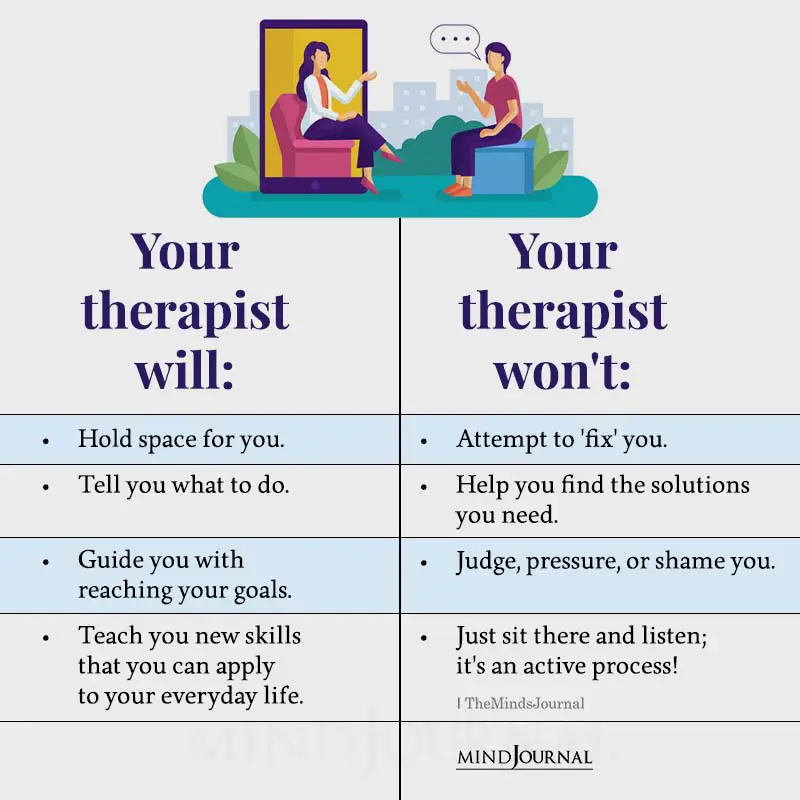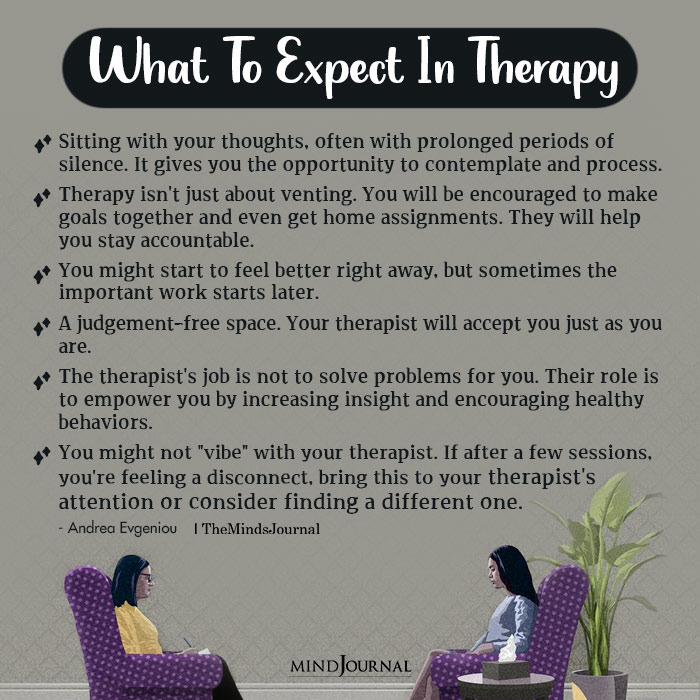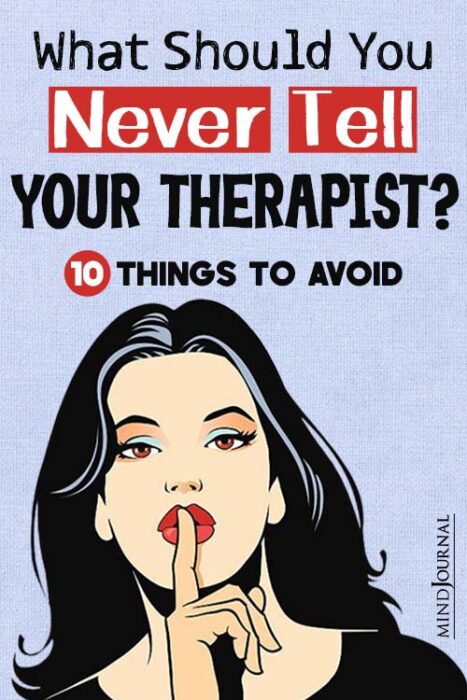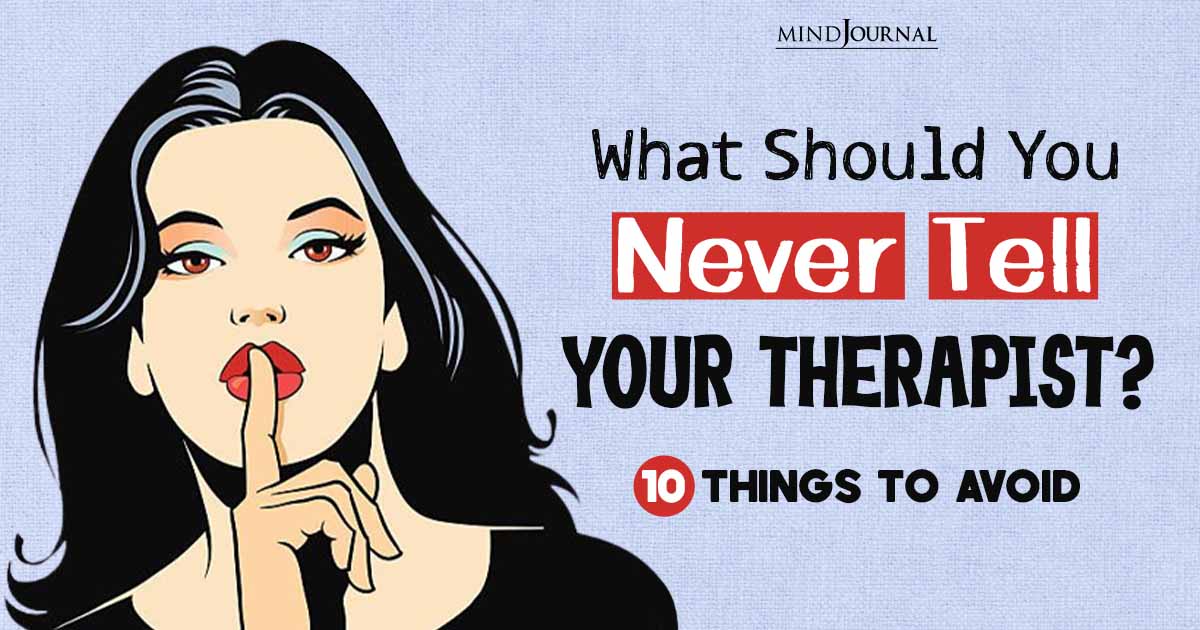Seeking therapy is a brave step towards better mental health and emotional well-being. It provides a safe and non-judgmental space to explore your thoughts, feelings, and experiences. But do you know what should you never tell your therapist? Can you overshare in therapy?
It’s essential to understand that there are certain things you should exercise caution about when sharing with your therapist. Today we will talk about what you should never tell your therapist.
Let us explore the boundaries of therapy, can you tell your therapist about illegal things, what happens if you tell your therapist you are suicidal and the impact of trauma on oversharing.
Respecting Confidentiality & The Boundaries of Therapy
Ever wondered what should I not tell my psychiatrist? Therapy is built on a foundation of trust and confidentiality. It is crucial to remember that therapists, psychologists and psychiatrists are bound by ethical guidelines and legal obligations to protect your privacy.
In general, therapists are required to keep the content of your sessions confidential unless there is a clear risk of harm to yourself or others. However, there are a few exceptions to confidentiality, which include situations involving child abuse, elder abuse, or a court order.

It is important to have an open dialogue with your therapist about the limits of confidentiality to ensure a clear understanding.
Related: 4 Major Reasons Why People Lie To Their Therapists About Their Eating Disorders
What Should You Never Tell Your Therapist?
Can you overshare in therapy? Can you tell your therapist about illegal things? What happens if you tell your therapist you are suicidal? If you have ever asked yourself “what should I not tell my psychiatrist?”, then here’s what you need to know –
1. Not Admitting That You Plan to Harm Someone
If you have thoughts of harming others or have intentions to commit violence, it is essential to understand that therapists have a duty to protect potential victims. They are obligated to report any imminent danger to the authorities to ensure the safety of individuals involved.
However, if you have violent thoughts or urges, make sure to talk to a trusted loved one or even your therapist as they can help you in overcoming such intrusive thoughts and prevent you from doing something you may regret later.
2. You are engaged in illegal activities
While therapy is a safe space, therapists are mandated reporters, meaning they are legally obligated to report any illegal activities that may pose harm to yourself or others. It is important to consider the potential consequences before disclosing illegal actions during therapy sessions.
3. You are Not Going to Take Your Prescribed Medication
If you have concerns or reservations about your medication, it is important to discuss them openly with your therapist or psychiatrist.
However, stating that you have no intention of taking your prescribed medication may raise concerns regarding your treatment plan and the therapist’s ability to ensure your well-being. This is what should you never tell your therapist.
4. Lying about Self-Harm or Suicidal Thoughts
If you are experiencing suicidal thoughts or have plans to harm yourself, it is crucial to share this information with your therapist. They can provide the necessary support, resources, and interventions to ensure your safety.
Your therapist’s primary concern is your well-being, and they will work with you to develop a safety plan.
5. You are Having an Ongoing Affair
While therapists maintain confidentiality, it is important to note that they may encourage open and honest communication within relationships. If you are seeking advice on how to handle relationship issues or infidelity, it may be more appropriate to discuss this with a couples therapist or a relationship counselor.
Related: The 4 Most Valuable Things I Learned From My Therapists
6. You are intentionally withholding information
Honesty and open communication are fundamental in therapy. If you are intentionally withholding information, it can hinder the therapeutic process and prevent your therapist from fully understanding your experiences and challenges. It is essential to work towards building trust and sharing openly with your therapist.
7. Your symptoms are genuine, when you’re actually faking them
It is crucial to remember that therapy is a space for authenticity and self-reflection. If you feel inclined to fake or exaggerate symptoms, it can hinder your progress and prevent your therapist from providing appropriate support and guidance. Honesty is vital for effective therapy.
8. Lying About Trusting Your Therapist
Building trust and a strong therapeutic alliance takes time. If you are experiencing difficulties in trusting your therapist, it is important to address these concerns openly and honestly.
Discussing your feelings can help you both work towards strengthening the therapeutic relationship.
9. You’re Involved in a Serious Crime
If you are involved in a serious crime, therapists are obligated to report this information to the relevant authorities. It is crucial to consider the potential legal consequences before disclosing such information during therapy sessions.
10. You’re Manipulating Your Therapist
Therapy is a collaborative process based on trust and mutual respect. If you believe you are intentionally manipulating your therapist, it is crucial to reflect on your motivations and consider discussing these feelings in therapy.
This can provide an opportunity for growth and exploration of underlying issues. This is what should you never tell your therapist.
Remember, therapy is a safe and confidential space designed to promote healing and personal growth. While there are boundaries to consider, open and honest communication with your therapist is crucial for effective treatment.
Building a trusting relationship with your therapist can greatly enhance your therapeutic journey.
Related: How Do I Know If a Therapist is Right For Me? 10 Signs
Can You Tell Your Therapist About Illegal Things?
One common concern is whether it is safe to share details of illegal activities with your therapist. While it is generally advisable to be honest and forthcoming during therapy, therapists are mandated reporters, meaning they are required to report any suspected or disclosed illegal activities that may pose a danger to yourself or others.
So if you ever wondered about “can you overshare in therapy?” or “can you tell your therapist about illegal things?”, then you should know that your therapist’s primary duty is to ensure your safety and the safety of those around you.
Therefore, it is important to carefully consider the potential implications before discussing illegal activities during therapy sessions.

What Happens If You Tell Your Therapist You Are Suicidal?
If you are experiencing suicidal thoughts, it is crucial to share this information with your therapist. Suicidal ideation is a serious concern that requires immediate attention and intervention.
Your therapist is equipped to provide you with the support, resources, and appropriate interventions to ensure your safety. They can help you develop coping strategies, connect you with crisis hotlines, or involve other mental health professionals to create a comprehensive safety plan.
Remember, your therapist is there to help you, and disclosing your suicidal thoughts is a crucial step toward getting the assistance you need.
Trauma and Oversharing in Therapy
So what should you never tell your therapist? Oversharing is an issue most people experience during their therapy sessions. But is it okay to overshare? What trauma causes oversharing?
Trauma that causes oversharing often involves experiences of isolation, neglect, or emotional deprivation, leading individuals to seek connection by sharing personal details, sometimes inappropriately, as a coping mechanism for loneliness or insecurity. This is the answer to what trauma causes oversharing in therapy.
Traumatic experiences can have a significant impact on our lives, often leading to a desire to share our pain and experiences. However, it is essential to recognize that therapy is a process that requires pacing and establishing a sense of safety.
Oversharing, especially in the early stages of therapy, can be overwhelming and hinder progress. Therapists are trained to guide you through the healing process by creating a safe space for disclosure.
By gradually exploring and processing your trauma, you can work together to develop coping strategies and promote healing in a balanced and manageable way.
Related: 11 Critical Questions To Ask Your Therapist About Treating Complex Trauma
Takeaway
In therapy, trust, confidentiality, and open communication are paramount. While it is essential to be honest and transparent with your therapist, it is equally important to be mindful of certain boundaries.
Understanding what you should never tell your therapist, such as illegal activities or suicidal thoughts, is crucial for your well-being and the therapeutic process. By respecting these boundaries, you can foster a therapeutic relationship based on trust, vulnerability, and growth.
Remember, your therapist is there to support and guide you on your journey toward healing and self-discovery.
Frequently Asked Questions (FAQs):
Is there anything you shouldn’t tell your therapist?
It’s essential to be open with your therapist, but you may want to avoid sharing explicit self-harm plans or illegal activities.
What are therapists not allowed to say?
Therapists are generally not allowed to breach confidentiality, engage in inappropriate relationships, or provide unethical or harmful advice.
Should you really tell your therapist everything?
In therapy, it’s important to share relevant information and feelings, but you can set boundaries based on your comfort level.









Leave a Reply
You must be logged in to post a comment.